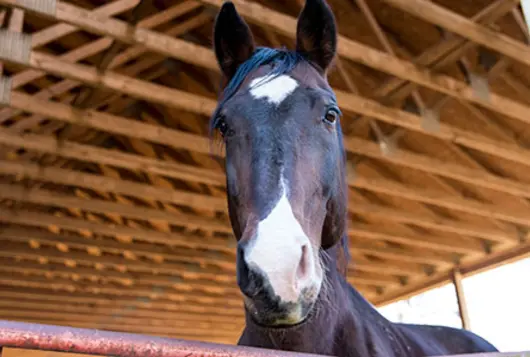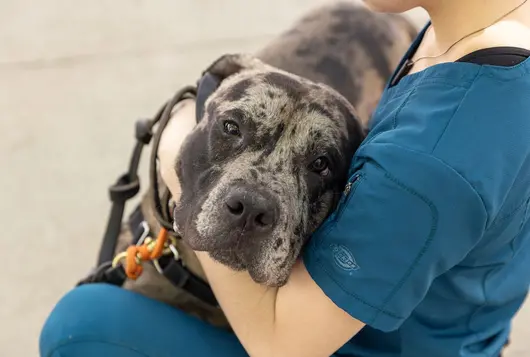FAQs about CBD Use in Pets

Q: What is CBD?
A: Cannabidiol, or CBD, is a cannabinoid produced by the plant Cannabis sativa, commonly known as marijuana. After many anecdotal reports of CBD's potential health benefits, studies are now underway to look at the potential benefits of CBD for controlling pain from conditions such as osteoarthritis, calming anxious pets, and as a possible treatment for epilepsy in dogs. CBD is being used by many pet owners today, so it's essential to know enough about it to discuss the potential risks of use.
Q: Is CBD psychoactive?
A: No; however, there are several possible reasons a dog who has ingested CBD may look high:
- The product that the pet ingested contains both THC and CBD. There are many products on the market, some even labeled for use in pets, that contain both CBD and THC at varying concentrations, so check the labels or look up the product online to see what's in it.
- The pet ingested enough of a CBD product to cause THC toxicity. Hemp can legally contain up to 0.3% THC, so if a pet ingests a large amount of a hemp-based CBD product, mild THC toxicity can occur.
- The product has not undergone quality assurance testing and contains THC.
- The dog also found some marijuana or THC edibles. Ask about any other cannabis products in the home.
Q: What are the most common signs reported in pets after the ingestion of CBD products?
A: Vomiting, lethargy, inappetence, and diarrhea are the most common clinical signs reported. Ataxia can occasionally occur with large ingestions.
Q: How do I treat these cases?
A: Most cases need no treatment, aside from symptomatic care for gastrointestinal upset if it occurs. If it's a large dose, where the THC content might be a factor, mild sedation, urinary incontinence, hyperesthesia, and ataxia could develop, and the pet should be confined to prevent injury from misadventure. If you see significant signs that look like THC toxicity, treat the pet in front of you and provide IV fluid support, anti-nausea medication, and good nursing care as needed.
Q: Is there anything special I need to know about pet hemp treat overdoses?
A: Products sold as "soft chews" can have an osmotic effect when large amounts of chews are ingested and pull fluid from the body into the gastrointestinal tract. In mild cases, this can lead to diarrhea and dehydration. In severe cases, hypernatremia, hyperglycemia, hyperkalemia, azotemia, and acidosis can occur. Aggressive fluid therapy, while monitoring hydration status and electrolytes in these pets, is critical.
Q: What about interactions with other medications? Any long-term effects to be concerned about?
A: CBD is an inhibitor of cytochrome P450 and has the potential to affect the metabolism of other drugs. While this appears to be of minimal clinical significance in most cases, this may be important when CBD is used in a pet for seizure control. Doses of other anticonvulsants may need to be adjusted. Remember that owners may discontinue anticonvulsants on their own if they feel that CBD is controlling their pet's seizures, so this is an important discussion to have.
CBD has also been shown to cause dose-dependent elevations in liver enzymes in various safety studies. This has not been noted in acute overdose situations but could be a concern in pets taking CBD long-term. Monitoring liver enzymes and total bilirubin in these pets is recommended.
Pet poison emergency? Call the #1 expert in the field, ASPCA Poison Control, at (888) 426-4435.
We have lots more on this subject:




